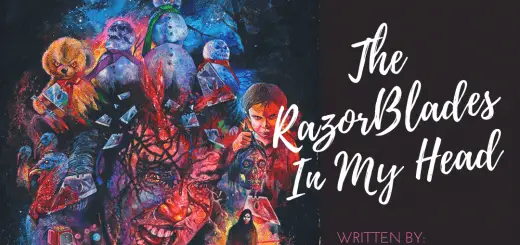Best Books For Authors

As Stephen King famously stated in his iconic work ‘On Writing‘, “If you want to be a writer, you must do two things above all others: read a lot and write a lot.” This holds true for both fiction and non-fiction and we have a few books to share with you today from writers of multiple genres that you should be checking out. Obviously, we’re firm believers that King’s work should be on the list but we were trying to find some uncommon suggestions which you may not have previously come across!
Let’s take a look!
Fiction Novels That Leave An Impact
I. E. Kneverday
I. E. Kneverday is a writer of science fiction, horror, and fantasy, whose work has been featured in publications including Drabbledark and Exop
Website: Kneverday.com
I think High-Rise by J.G. Ballard is an excellent example of a thrilling novel. It kicks off with one of the most gripping opening sentences of any novel I’ve read; “Later, as he sat on his balcony eating the dog, Dr Robert Laing reflected on the unusual events that had taken place within this huge apartment building during the previous three months.” It’s a short novel that has a lot to say about humans and the modern world, and it’s as relevant today – if not more even more so – than it was in 1975. It doesn’t have the filler and fluff that most longer novels tend to have, no boring or unnecessary passages to skim through, just an inexorable mounting of tension until the final sentence and the terrible possibilities it suggests.
Cameron Trost
Cameron Trost is a writer of strange, mysterious, and creepy tales about people just like you. He is the author of Hoffman’s Creeper and Other Disturbing Tales and The Tunnel Runner, and is the creator of Oscar Tremont, Investigator of the Strange and Inexplicable. He hails from Australia but now lives in France, between the rugged coast of Brittany and the vineyards of the Loire. Castles, forests, storms, and whisky are a few of his favourite things. https://trostlibrary.
My vote has to go to Bram Stoker’s “Dracula”, as it’s possibly the best example of epistolary fiction (IMHO), as well as a horror classic that spawned countless additions to the genre. In addition, he ramps up the suspense by keeping Dracula “off stage” for a great deal of the novel, very similar to Spielberg’s brilliant solution when the mechanical shark in Jaws wasn’t working, and he came up with the barrels being dragged through the water. Stoker may have had the sense that the imaginations of his readers would conjure up the most horrifying image of Dracula possible…and time has proven him right. I find this a great lesson about crafting a sense of unease, of suspense, of keeping the reader wondering and imagining, and try to use that whenever possible in my own work.
G.A. Miller
G.A. Miller is a new voice in the chorus of horror authors, drawing his ideas from every day, commonplace events that take unforeseen turns down dark corridors, often with horrific consequences.
G.A. lives where Lovecraft lived, due south of where King lives. Perhaps there’s something in the water in New England? One wonders…
Editor’s Note: If we were short on fiction suggestions for this post, the following novel was at the top of my lists to include!
It’s not enough to say words are important; well-crafted language is transcendent. No book amplifies this as much as Mark Z. Danielewski’s House of Leaves. While certain books have left an emotional and mental impact on me, Danielewski’s book was the first time I realized words themselves had as much artistic physicality as the connotation or denotation we give them. A sentence, a line, a stanza can tell a microcosm of a story more impactful than the thickest memoire because of the way it hangs in the empty bottom of a page.
Plus, there’s one quote that will probably haunt me till the day I die: You’ll finish [the book] and that will be that, until a moment will come, maybe in a month, maybe a year, maybe even several years. . . Out of the blue, beyond any cause you can trace, you’ll suddenly realize things are not how you perceived them to be at all. For some reason, you will no longer be the person you believed you once were.”
A writer by passion and a content creator for The Zebra’s insure-tech blog by profession, being a bibliophile has always been a fundamental marker of identification for me.
Non-Fiction Works To Help Guide Your Craft
On Writing Horror (edited by Mort Castle) is a compilation of sage advice from masters of the craft, specifically catering to those who wish to pen horror. From such brilliant minds as Jack Ketchum, Harlan Ellison, and Stephen King comes a variety of philosophies regarding the act of writing the dark. From character development to plotting, to style and form, the articles therein are a helpful tool to develop and refine one’s voice without being too heavy-handed or preachy. A wide array of voices serves to offer an honest approach to the craft and attempts to prepare whoever partakes in the long journey to becoming a published horror writer.
Franklin Murdock
Franklin Charles Murdock is a fiction writer from the Midwestern United States. Though most of his work is harvested from the vast landscapes of horror, fantasy, and science fiction, Franklin strives to spin tales outside the conventions of these genres.His work has appeared in DarkFuse, Under the Bed Magazine, 69 Flavors of Paranoia, MicroHorror, Liquid Imagination, Yellow Mama, Heavy Hands Ink, WEIRDYEAR, Phantom Kangaroo, PrimalZine, and various other publications. Most recently, he’s been coauthoring the serial epic BEARD THE IMMORTAL on swordandportent.com.
Editor’s Note: I REALLY like the reasoning behind the choices and feel it is something that authors should use to really get new ideas into their writing process.
I also always keep something that challenges me on my bookshelf. I work slowly through books (like ‘Sister Outsider‘, by Audre Lorde, or ‘The Gene‘, by Siddhartha Mukherjee — both of which I highly recommend) that I know are about big ideas outside the topics I already write about. I leave these books where they’ll catch my eye so that I keep thinking about them while writing.
Thursday Bram
Thursday Bram writes about intersectional feminism, cryptocurrencies, kitchen sinks, and anything else that catches her interest. She organizes conferences, sticker swaps, and potluck dinners on a regular basis. You can find Thursday online at ThursdayBram.com.
William Cane’s Fiction Writing Master Class (published by Writer’s Digest Books) is an intriguing look at what makes the work of each of its “subjects” unique. Each chapter focuses on a different famous author. Some standouts include Ernest Hemingway (who didn’t use commas, did you know that?); the use of details to create a middle-aged male fantasy in Ian Fleming’s Bond novels; and the use of “voice” to capture the teen angst in J.D. Salinger’s Catcher in the Rye.
Of particular note to horror writers is the final chapter, about Stephen King. Cane notes that while On Writing is a good read if you really want to know what makes King tick, go through his work with a highlighter. He explains how King uses a “call and response” technique, which also works for comedy, to create tension. You introduce the subject, then refer to it again throughout the text, until you get the payoff. This is a valuable technique, and King’s subtle (or sometimes not so subtle) way of structuring his stories can be put to good use in your own work.
Selene MacLeod
Selene MacLeod is a night operator and sometime writing hobbyist. She holds a BA in Communications from Wilfrid Laurier University and resides in Kitchener, Ontario. Her work has appeared in several horror and crime fiction anthologies, most recently Shotgun Honey, Drag Noir (Fox Spirit Books); and the upcoming Freakshow: Freakishly Fascinating Tales of Mystery and Suspense (Copper Pen Press), and Tragedy Queens (Clash Media).She’s most excited about editing a charity anthology for Nocturnicorn Books called Anthem: A Tribute to Leonard Cohen, due out late 2017.
The book I always recommend as a writer to other writers is Verlyn Klinkenborg’s Several Short Sentences About Writing. It took me 45 years to find a book that described what I’d been doing and made me feel good about doing it. Klinkenborg departs from the usual advice to writers in favor of a very different message.
He argues that the most important thing a writer can do is write good sentences, not as a schoolish exercise, but as a matter of daily consciousness. He describes writing as the act of discovering how these sentences are made, of working to provide flow to the reader, not the writer. He pulls no punches, does not mince words, and makes no promises.
There are plenty of books out there that talk about the career of writing, or about the nuts and bolts of writing a novel. Some of these books are quite good. This is the only one I’ve seen that zeroes in on the type of thing a writer must live and breathe in order to write something worth reading, and worth reading again.
Adam Cole
Adam Cole – A Jazz Musician Who Writes Books!
You can follow Adam’s work at ACole.net!
As an author, entrepreneur, and owner of a publishing company, highly recommend all writers to read “Steal Like an Artist” by Austin Kleon. I highly recommend this book because its unique in its approach on how a person can reach their creativity. The author inspires writers and others by helping them understand that creativity is for everyone and is everywhere. Austin Kleon uses different methods to get his message across including positive affirmations, illustrations, and exercises.
“Draw the art you want to see, start the business you want to run, play the music you want to hear, write the books you want to read, build the products you want to use — do the work you want to see done.” – Austin Kleon
Writers aren’t just artist, we are business people and as you can see from the above quote, Mr. Kleon provides creative inspiration for artists, writers, as well as entrepreneurs.
Vid Lamonte' Buggs Jr.
I am Vid Lamonte’ Buggs Jr, founder and owner of 4-U-Nique Publishing, LLC and a bestselling author of ‘You Ain’t Hungry Until I’m Starving‘, ‘Getting Out of the Dark: How to Have a Life Full of Success, Wealth, and Happiness’, and ‘Vid’s Viddles: Nutrition for the Soul’.
Editor’s Note: This final one isn’t just a book! However, I felt it was a super fun and useful tool that you might get a kick out of checking out! – Stu
My suggestion is Naomi Epel’s, The Observation Deck: A Tool Kit for Writers!
Whether you are writing fiction or non-fiction, this book and deck of cards are a God-send when you get in a stuck place.
It doesn’t teach you how to write but instead provides insights and exercises to inspire creative thoughts. And which writer
doesn’t need a shot of that from time to time?
Allen Klein
Author of 26 books including ‘The Healing Power of Humor’ and ‘You Can’t Ruin My Day.’ You can follow Allen’s work at: http://www.allenklein.com/books.htm
I hope everyone enjoyed these suggestions and may have found a few new ideas of books to read to enhance their writing either by learning new aspects of the craft or getting ideas from how others have perfected their own writing over the years. There is a good chance we’ll do another post like this down the line if there is enough interest so please be sure to let us know in the comments below if you liked this one!
- About the Author
- Latest Posts
Stuart Conover is a father, husband, published author, blogger, geek, entrepreneur, horror fanatic, and runs a few websites including Horror Tree!












